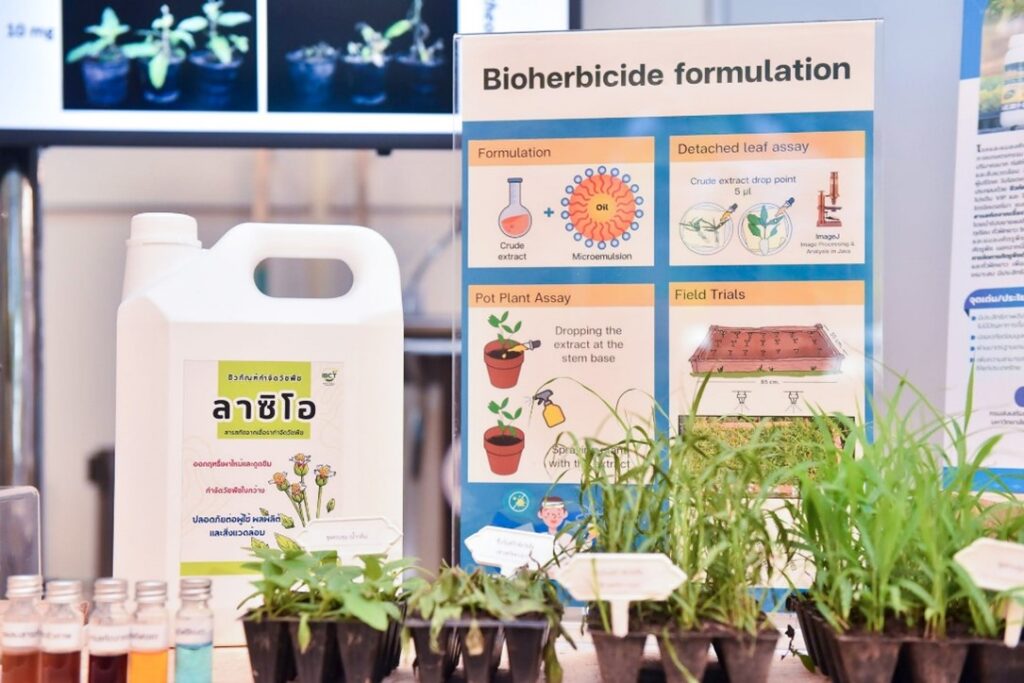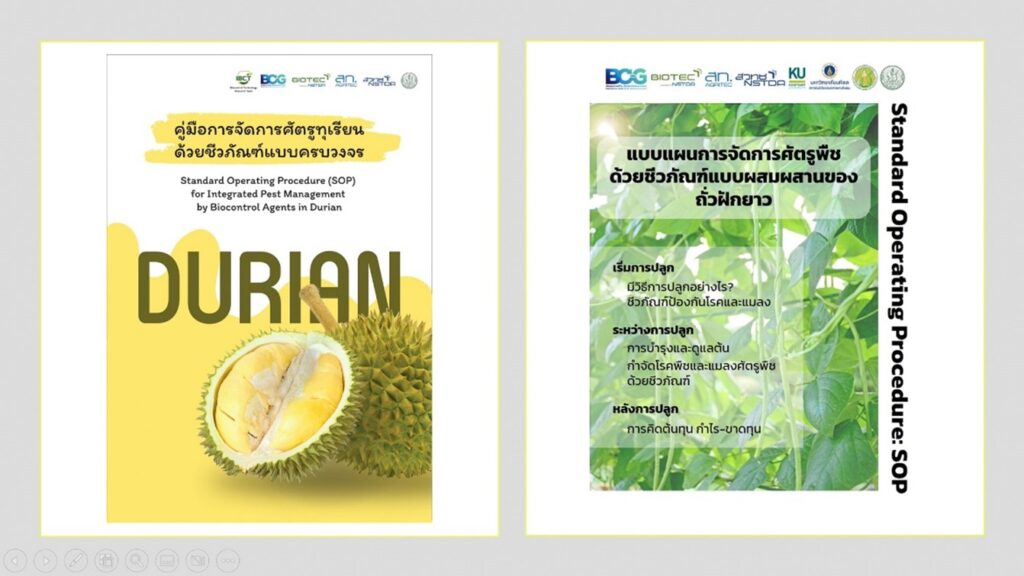Thailand’s agricultural industry is facing significant challenges due to the prolonged use of hazardous pesticides. This has led to drug resistance in pests, toxic residues in crops, harm to humans and animals, damage to ecosystems, and an overall negative impact on the environment. To address this issue, researchers at BIOTEC-NSTDA are developing agricultural bio-products. These bio-products aim to provide an alternative to harmful pesticides and promote sustainable farming practices.
The bio-products being developed by researchers include insect control agents, plant disease control agents, and weed control agents. They are intended for use in fruit trees, vegetables, ornamental plants, field crops, and paddy field rice. The goal is to create safer and more environmentally friendly options for farmers to use in their fields.
Pest control agents
Currently, there is a significant use of chemical substances in cultivation areas for pest control, with the majority of these chemicals being imported from foreign countries. To address this issue, a research team has screened microorganisms from the country’s microbial repository that have shown high efficacy in controlling plant diseases and pests at the laboratory level. One such microorganism is the Beauveria bassiana strain BCC 2660, which can control brown planthopper, aphids, leafhoppers, whiteflies, fruit flies, and more. This technology has been transferred to the private sector and registered with the Department of Agriculture. Different types of fungi, bacteria, and viruses are utilized for pest control in agriculture. For instance, Metarhizium anisopliae (strain BCC 4849) is effective in targeting red spider mites, fruit flies, and beetles. Meanwhile, Bacillus thuringiensis-derived protein (VIP) is used to control caterpillars. Additionally, three types of nucleopolyhedrovirus (NPV) are used to manage onion maggots, vegetable leafminers, and corn earworms.

Plant disease control agents
The research team has developed an effective biocontrol product that utilizes the Trichoderma asperellum fungus strain TBRC 4734 to combat a range of plant root diseases. This product has proven to be very useful in fighting Phytophthora root rot, Pythium damping-off disease, and Peronospora downy mildew, which are known to be particularly harmful to plants, especially durian trees, during the wet season.
The Trichoderma fungus is beneficial in reducing the severity of Phytophthora infections and promoting the strength and vigor of plants. The research team has also created biocontrol products for various other plant diseases, including bacterial diseases that can be transmitted through seeds, such as blight, fruit rot, and wilt diseases in various plant families. These breakthroughs in biocontrol products offer promising solutions for plant diseases, which can have significant impacts on crop yields and food security.
C agents
Thailand is the country that imports the highest amount of herbicides among other types of agricultural chemicals. In collaboration with Naresuan University, BIOTEC-NSTDA has worked on isolating microorganisms from samples of diseased weeds. They have been able to culture extracts from fungal groups like Lasiodiplodia theobromae on low-cost substrates derived from industrial waste materials. This process produces various types of chemicals that can be combined to create bioformulation in the form of microemulsion. This bioformulation can effectively control weeds and can be compared to commonly used chemical herbicides. Toxicological tests have shown that the bioformulation produced from this process is safe for humans and animals.
The Agricultural Research Development Agency (ARDA) is presently funding this research project to develop the production process at a semi-industrial level to prepare for technology transfer to entrepreneurs.

In addition to developing biocontrol agents, the research team has also gathered knowledge by collaborating with partner organizations and farmers. They have created a comprehensive Standard Operating Procedure (SOP) for integrated pest management by biocontrol agents in durian and yardlong beans. This guide will be distributed as an e-book through online media channels of the research team and partners. It aims to educate farmers on the proper use of biocontrol agents for maximum effectiveness.

The utilization of biocontrol agents for pest management assists in improving the competitive advantage of the country by promoting safe agriculture and organic fruit and vegetable production. This approach is in line with the BCG Economy Model, which aims to promote sustainable economic growth.
For those interested in adopting the ‘Biocontrol Agents for Pest Management’ technology can contact the Biocontrol Technology Research Team at BIOTEC, NSTDA. Alternatively, you can find more information by following the Facebook page.

